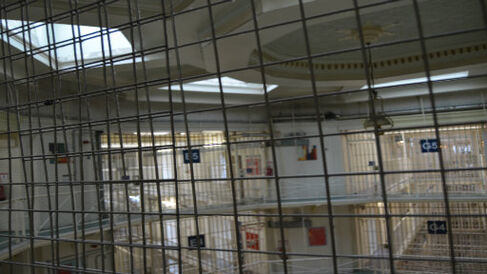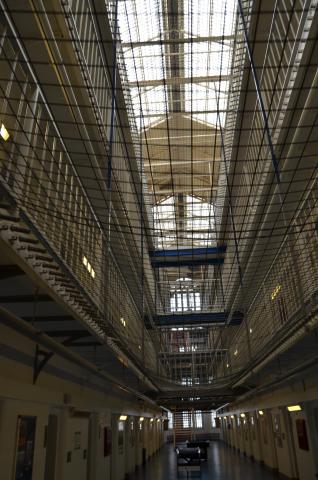Kristian Mjåland Blog 1

The sound of prison
In this research project, we are comparing imprisonment in a country I know well, Norway, and countries I know less well, England & Wales. To explore the same issues in both familiar and unfamiliar contexts is one of the many advantages of comparative research like this: the unfamiliarity makes you reflect on aspects that you otherwise would have taken for granted, or simply not recognized.
One such aspect is the sound of prison. It was not until my first visit in an English prison that I came to realise that prisons have different sounds, and that, comparatively speaking, Norwegian prisons are quiet.
The first English prison we went to is a large local prison, holding approximately 1300 men in a building dating back to the middle of the 19th century. It was overwhelming to enter the central hall of the prison, from where you could see five radiating wings, each of them five floors tall and separated from the center via two large white painted bars. I realized that from where we stood, in the central hall of the prison, we could hear the sound of almost 1300 men locked up. I felt the need to take a deep breath: This prison holds the equivalent of 1/3 of the entire Norwegian prison population.
What struck me the most that first day in this prison was the noise. Walking through the wings of the prison you hear several different sounds: The constant and underlying buzzing sound of people talking and moving, reminding you that this is a very busy and densely populated place; the less constant but still frequently occurring sound of alarms going off; and last but not least: the sound of shouting. I had never before heard prison officers shout out messages to prisoners, but here it happened all the time. These more sudden noises, of alarms, shouting, screaming and banging on cell doors, often made me jump: I felt uncomfortable and alert. When we left the prison later that afternoon, I was exhausted, and longed for some good old silence.

The following day we returned to the prison, and I spent a couple of hours hanging out at one of the wings. Again I was overwhelmed with all the noise. Prisoners were banging at their cell doors. Someone was screaming out loud from their cell. Prisoners having association were having conversations with prisoners who were locked up and had to scream to be heard inside. The alarm lights outside the cell doors were often blinking, and almost all day there was a constant and deeply annoying sound from an alarm. I was later told that this was the emergency alarm, and that it didn’t stop until prison officers had checked in on the prisoners who made the alarm go off. Was the sound of that very alarm the sound of prisoners in emergency not receiving attention?
These first two days in an English prison left me with so many impressions, questions and reflections, many of them related to the impact of sound. How does it feel to live and work in a prison with so much noise? How do prisoners and officers cope? How is noise related to fear, and what are the implications of all the shouting for staff-prisoner relationships? A puzzle remains, however, for the Norwegian part of our study: how do you explore the (comparatively speaking) lack of noise? How do you study silence?
Dr Kristian Mjåland is a Senior Research Associate in the COMPEN team, Institute of Criminology, University of Cambridge.
